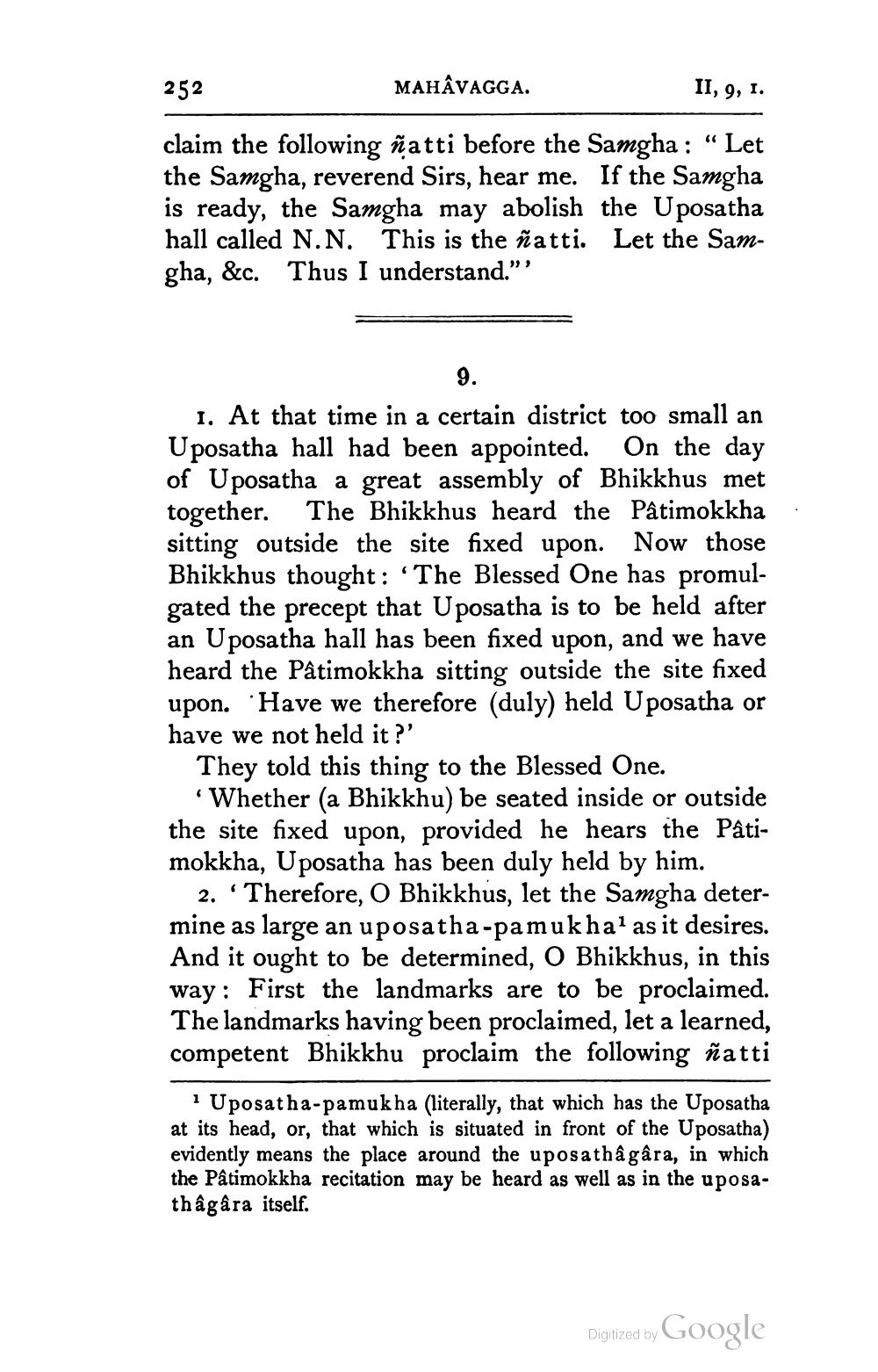________________
252
MAHẬVAGGA.
II, 9, 1.
claim the following ñatti before the Samgha: “Let the Samgha, reverend Sirs, hear me. If the Samgha is ready, the Samgha may abolish the Uposatha hall called N.N. This is the ñatti. Let the Samgha, &c. Thus I understand.”'
1. At that time in a certain district too small an Uposatha hall had been appointed. On the day of Uposatha a great assembly of Bhikkhus met together. The Bhikkhus heard the Pâtimokkha sitting outside the site fixed upon. Now those Bhikkhus thought: 'The Blessed One has promulgated the precept that Uposatha is to be held after an Uposatha hall has been fixed upon, and we have heard the Pâtimokkha sitting outside the site fixed upon. 'Have we therefore (duly) held Uposatha or have we not held it?'
They told this thing to the Blessed One.
Whether (a Bhikkhu) be seated inside or outside the site fixed upon, provided he hears the Pâtimokkha, Uposatha has been duly held by him.
2. 'Therefore, O Bhikkhus, let the Samgha determine as large an uposatha-pamukha' as it desires. And it ought to be determined, O Bhikkhus, in this way: First the landmarks are to be proclaimed. The landmarks having been proclaimed, let a learned, competent Bhikkhu proclaim the following ñatti
1 Uposatha-pamukha (literally, that which has the Uposatha at its head, or, that which is situated in front of the Uposatha) evidently means the place around the uposath âgâra, in which the Pâtimokkha recitation may be heard as well as in the uposathâgâra itself.
Digitized by Google




